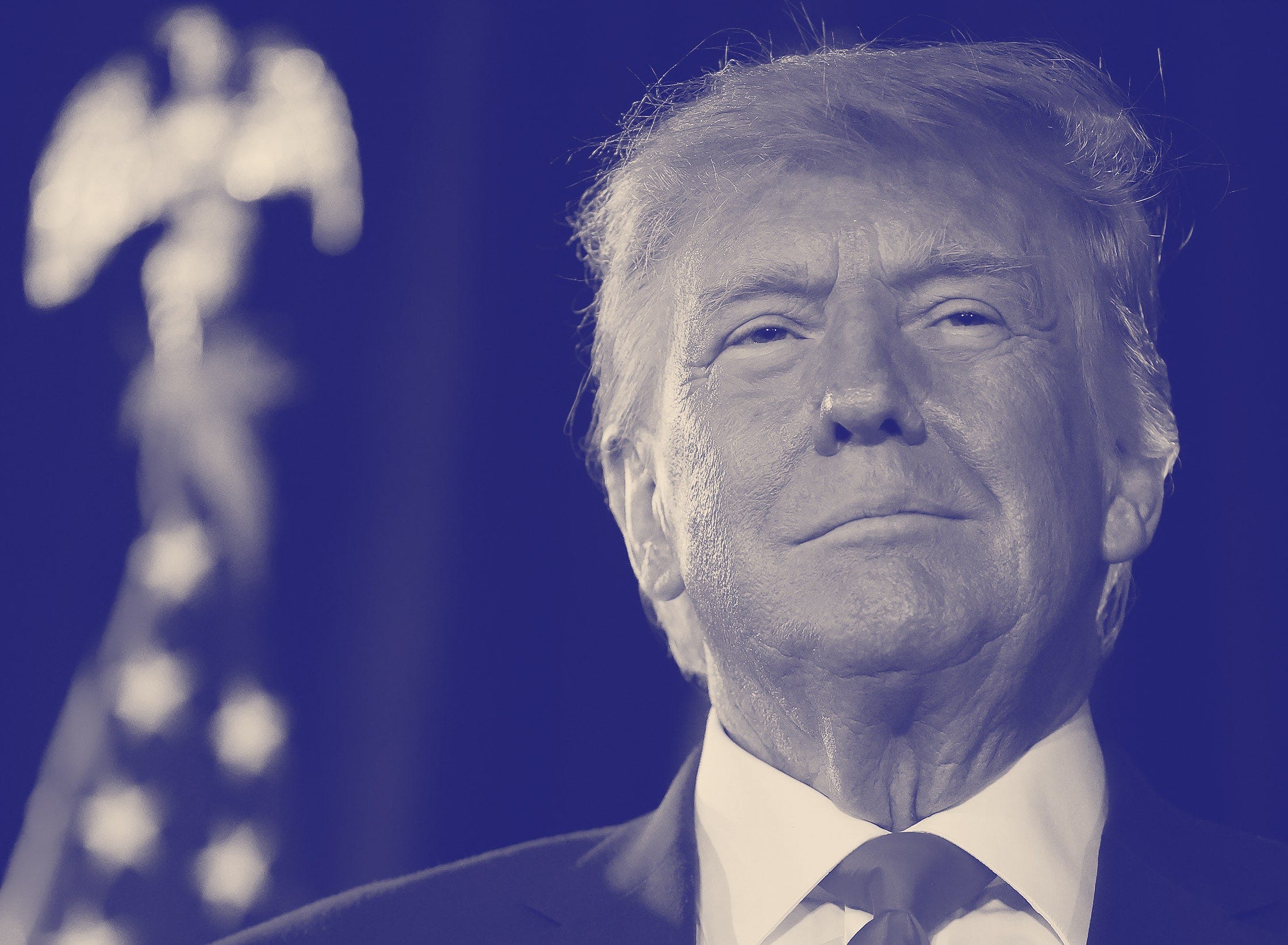Is Donald Trump a Neocon?
The Neoconservatives Are Getting Frantic That Trump 2.0 Is Genuinely Rebooted
Trump reminds one at times of the famous line from the novel Don Quixote by 17th century Spanish author Cervantes: “In order to attain the impossible, one must attempt the absurd.”
Trump’s first presidency was reduced to a theatre of the absurd, with the so-called Deep State blocking his path every inch of the way and rendering him ineffectual, beating his wings in the void in vain. A glaring example was the Pentagon openly flouting Trump’s order to vacate the occupation of northeastern Syria (which continues.)
Well-known American podcaster Judge Napolitano titled one of his indispensable daily podcasts last week “Is Trump a Neocon?” Napolitano echoed the criticism among Trump’s detractors (and sceptics.) In reality, though, the neoconservatives are getting frantic that Trump 2.0 is genuinely rebooted, but that’s another matter.
Trump is handpicking loyalists to ensuring that Trojan horses won’t infiltrate his stable—likes of Nikki Haley or Mike Pompeo. This means total rejection of so-called globalists, who repose faith in Pax Americana. At least four key figures proposed by Trump fit into this paradigm—Elon Musk and Vivek Ramaswamy who will preside over a purge of neocons dominating the bloated bureaucracy; Tulsi Gabbard as the intelligence tsarina who will not let misinformation pass as “intelligence” or allow rogue operations, Pete Hegseth as defence secretary who will keep flamboyant Pentagon commanders in tight leash. One way or another, they take a dim view of US interventionism.
What is neoconservative foreign policy? Its parenthood can be traced to Wilsonian idealism to “make the world safe for democracy.” Promoting freedom and democracy and protecting human rights around the world are its central tenets. Liberal internationalism is its grand strategy. (Neoliberalism is a revised version of liberalism.) Thus, the neoconservative foreign policy typically advocates unilateral promotion of democracy and interventionism abroad rooted in a militaristic philosophy of “peace through strength.”
Through the past three decades, neoconservative idealism took the form of an assertive and interventionist foreign policy that targeted regimes which defied US hegemony. Nonetheless, Trump never propagated a regime change agenda—not even toward authoritarian regimes. In this respect, he is a solitary exception while his peer group—George H W Bush, Bill Clinton, George W Bush, Barack Obama and Joe Biden—unabashedly promoted regime changes (eg, Yugoslavia, Georgia, Ukraine, Afghanistan, Iraq, Syria, Libya, etc.).
That said, a caveat must be added as Trump also agrees with the neoconservatives that the US’ military might can be employed whenever US interests are at stake. Now, that's some strategic ambiguity where subtlety comes in defining “interests.” Trump’s one major criticism of the Iraq war was that neither Bush nor Obama paid sufficient enough attention to seizing control over that country’s fabulous oil resources.
Arguably, therefore, it is entirely conceivable that when Trump harps on an immediate ceasefire and a freeze on further Russian offensives in Ukraine that may create new facts on the ground, he may well be having an unspoken neo-mercantilist agenda.
Ukraine is a treasure house of multi-trillion-dollar mineral resources, including rare earths. Its famed “chernozem” (black soil) containing high percentages of humus (4 per cent to 16 per cent) and phosphorous and ammonia compounds with high moisture-storage capacity, makes it very fertile giving great agricultural yields—which indeed already captivates MNCs, and George Soros, consistent with Trump's “America First” and MAGA strategies.
However, the main thrust of Trump’s national policy is about dismantling the Deep State. But here too, he is supportive of a strong military. Interestingly, Trump is not advocating a disbandment of NATO. His pressure tactic narrows down to NATO allies hiking defence budgets so that they remain a captive market for US weaponry—ie., vitalising the military-industrial complex.
Trump doesn’t want an independent Europe. An analyst recently invoked a biting metaphor of a dominating daddy to thumb-sketch Trump’s dialectic with Europeans—who habitually beats wife and kids and bullying junior to pay rent and work in daddy’s business to pay back the money spent for his education.
It is a moot point whether Trump is a neocon. The crux of the matter is that Trump can be as oppressive as his neocon peer group in the pantheon of post-Cold War US presidents.




